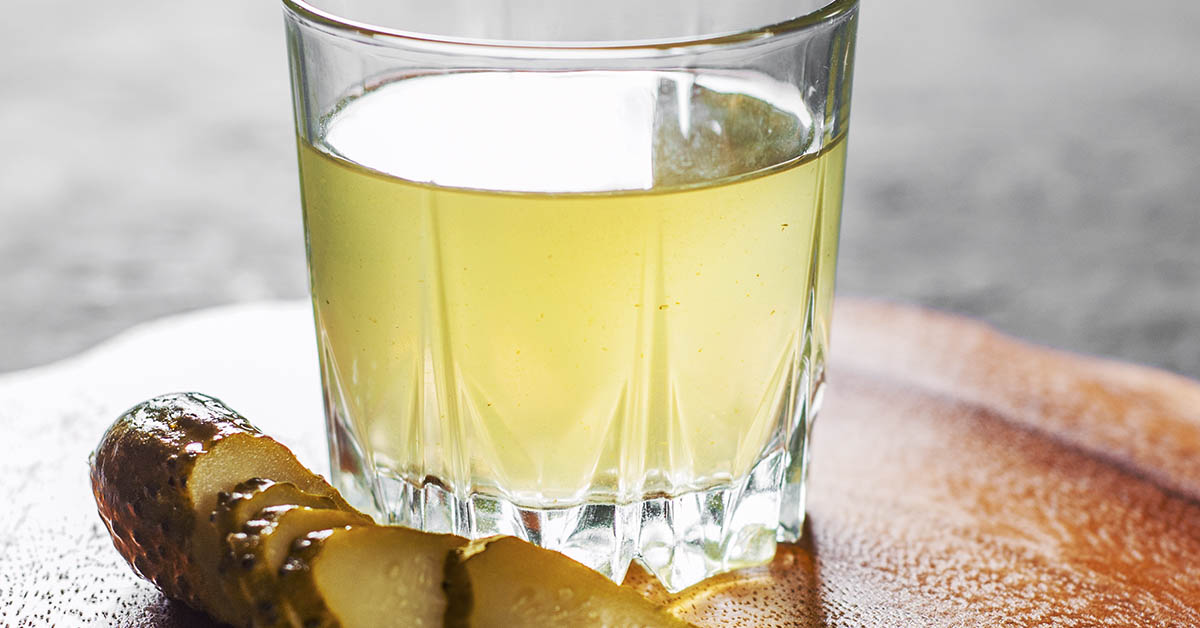If you’ve ever experienced muscle cramps, you know how inconveniant and even painful they can be. Whether you’re woken up in the middle of the night with your calf screaming at you or you’re out for a run and your quad keeps seizing up, cramps are no fun. Perhaps at some point, a grandparent, parent, coach, or friend has told you to go drink some pickle juice to solve your cramping problem. The question is, does this actually work? Or is it just one of those things that people used to do that actually has no real proof to back it up? This is what the science says.
Does Pickle Juice Really Help with Muscle Cramps?
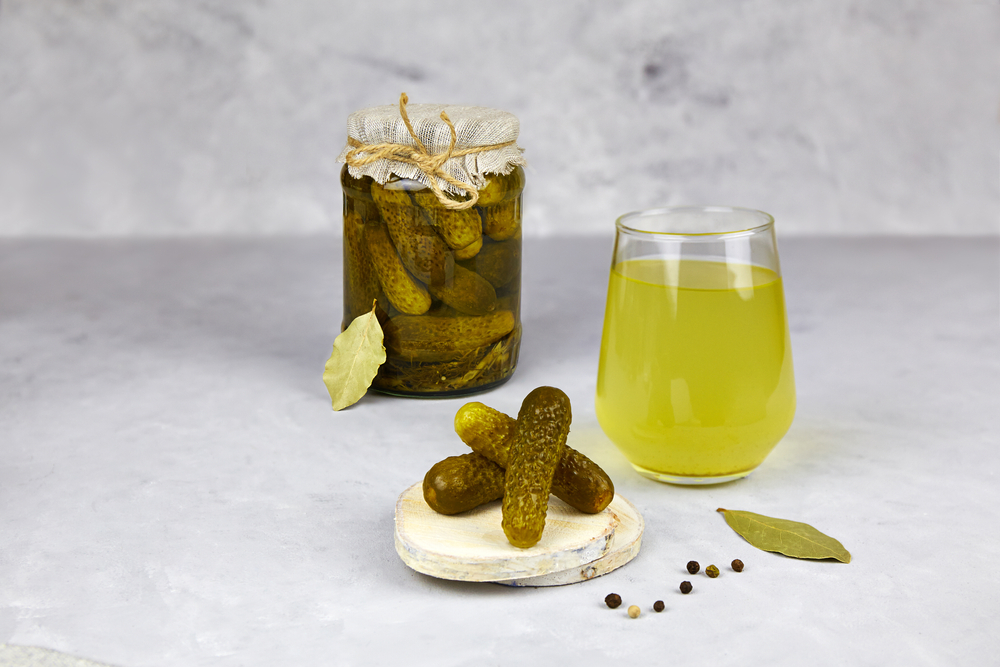
For years, some athletes and fitness enthusiasts have sworn by pickle juice as a quick fix for muscle cramps. The good news is, there actually is scientific backing for this claim. The reason it works, however, it not what you might think. While it was once believed that it was the high sodium content in pickle juice that was responsible for replenishing lost electrolytes, research suggests a different mechanism.
Studies have shown that a small amount of pickle juice can stop a muscle cramp much faster than it would take for the body to absorb the sodium. The pravailing theory is that the acetic acid (vinegar) in the brine triggers a neural reflex in the back of the throat. This reflex sends a signal to the brain, which in turn tells the cramped muscle to relax. This makes pickle juice an effective, fast-acting remedy for cramps, especially those brought on by exercise or liver disease (cirrhosis.
Other Potential Benefits of Pickle Juice
Beyond muscle cramps, pickle juice may offer several other health benefits. It is important to note, however, that these potential benefits have not been fully studied. More research is needed to confirm many of these theories.
Electrolyte Replenishment

While not the primary reason for cramp relief, the high content of sodium and potassium in pickle juice can help to replensish electrolytes lost through sweat. This can be beneficial for athletes or anyone experiencing dehydration. It is important to note that dehydration is not only just a lack of water, but rather, a lack of water and electrolytes. This is particularly for athletes, those exercise in hot conditions, and even for those just living in extreme climates.
Blood Sugar Regulation
The acetic acid in pickle juice, like other vinegars, may help regulate blood sugar levels by improving insulin sensitivity. This, in turn, helps to reduce blood glucose spikes after meals. Those with high blood sugar should be cautious, however, because of pickle juice’s high sodium content.
Gut Health
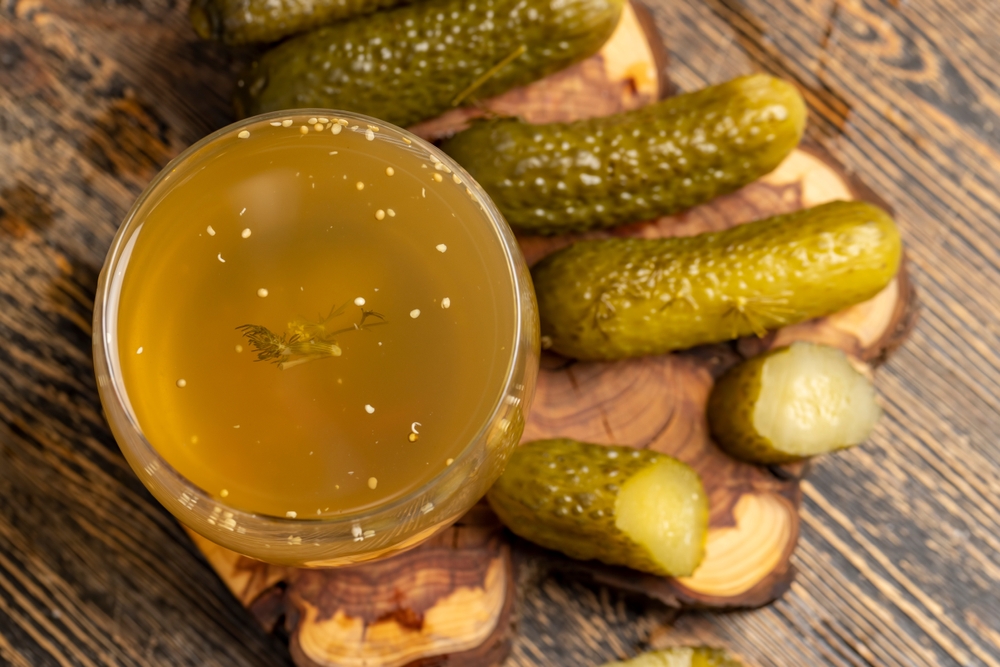
Traditional pickles are fermented. Naturally fermented pickle juice, which is unpasteurized and found in the refrigerated section of stores, contains probiotics. These beneficial bacteria can help maintain a healthy gut microbiome, which is essential for proper digestion and immune function. Not all pickles, however, are fermented. In fact, the majority of those you find in the supermarket won’t be. Do your brand research to find those that are traditionally made.
Antioxidant Properties
Some pickle juices contain various spices. These can include tumeric, which is a source of antioxidants that help protect against cellular damage from free radicals. If you want to know if a jar of pickles contains beneficial spices such as tumeric, read the ingredients label on the jar.
Drawbacks to Consider
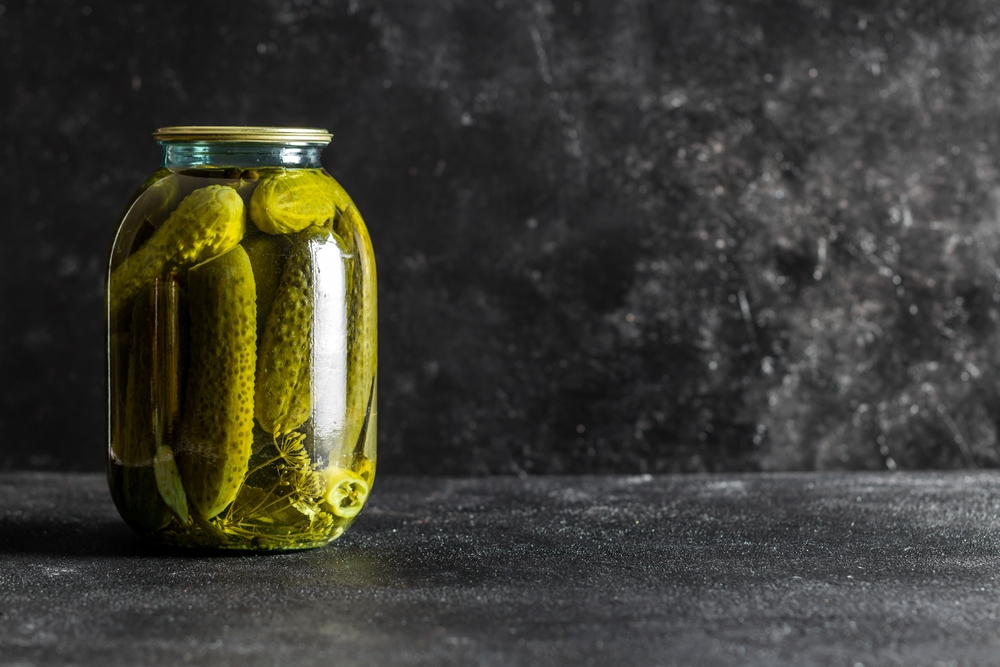
Despite its potential benefits, pickle juice isn’t a cure-all. It comes with some notable drawbacks, and therefore shouldn’t be considered as a “free” food item to consume as much as you want. These drawbacks include:
- High sodium content: The most significant downside is the extremely high sodium content. A small serving can contain a third of more of the recommended daily intake. For this reason, individuals with high blood pressure, heart disease, or kidney issues should consult a doctor before consuming it.
- Digestive upset: Drinking too much pickle juice can lead to side effects like bloating, gas, indigestion, or even diarrhea due to the high sodium and acidity.
- Acidity: For people who conditions such as acid reflux, heartburn, or stomach ulcers, the high acidity of pickle juice may worsen their symptoms.
Other Tips for Muscle Cramps
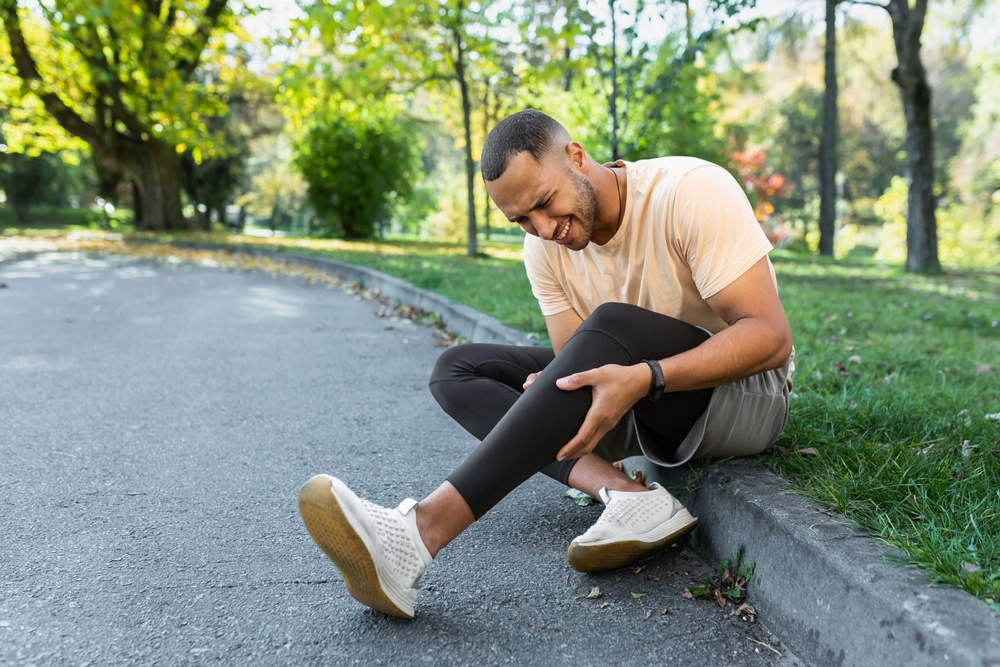
So what do you do if you’re reading this, struggling with cramps, but don’t like the idea of drinking pickle juice? If pickle juice isn’t for you, or if you’re looking for other ways to prevent and treat muscle cramps, consider the following strategies:
Cramp Prevention
The first line of defense is to stay hydrated. Drink plenty of water throughout the day, especially before and after exercise. Deyhdration and electrolyte imbalances are common causes of cramps. If you are exercising in particularly hot and sweat-inducing conditions, consider choosing electrolyte beverages or powders to drink in order to supplement your water intake. Don’t forget the role that diet has in hydration and electrolyte imbalance, either. Ensure your getting enough minerals and electrolytes through a diet rich in fruits and vegetables, espcially those high in potassium, magnesium, and calcium.
Next, make sure that you are stretching regularly. In addition to your daily routine including stretching, make sure to warm up and cool down proper before and after physical activity. Finally, if you are struggling and find that all of this isn’t enough, you can talk to your doctor about supplementation. Certain supplements, such as those with magnesium, potassium, or B vitamins, may be useful to prevent you from cramping.
Read More: 10 Immunity Boosting Juice Recipes To Save This Winter
Treating Cramps
Sometimes you can follow all of the prevention guidelines and you will still get a cramp. When a cramp strikes, gently stretch and massage the affected muscle to help it relax. One trick that often works with those nasty calf cramps that wake you up in the night is to stand up and put all of your weight on the leg that is experiencing the cramp. It sounds counterintuitive, but it works – the cramps will quickly diminish. After that, you can gently massage the area.
You can also use a heating pad or take a warm bath to soothe cramping muscles. Alternatively, some people find more relief by applying an ice pack wrapped in a towel. Even further, some find that using contrast therapy – alternating between warm and cool – can be highly beneficial. Finally, an important factor in the treatment of nocturnal cramps is being active Walking around, wiggling your leg, or standing on that leg as mentioned before, can help to alleviate the pain.
The Bottom Line
Cramps are no fun: Whether you get them while playing sports or while sleeping at night. Pickle juice may be and affective remedy to help you manage cramping muscles. That being said, it may not be for everyone, either because of taste preferences or health requirements. In this case, there are many other ways to both prevent and treat cramps. Find what works for you and stick with it. If you are still struggling, speak to your doctor who may be able to help you to discover the reason you’re muscles are cramping and how to solve it.
